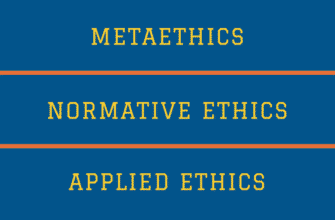What motivates you to pursue success? I’m not referring to money or fame; those are the products of success. What I’m asking is when you set your sights on a new challenge, what thought is going through your head?
On a recent episode of Pod Save America, they were discussing the inner dialogue of an unsuccessful presidential campaign—oversights, skewed approaches, why the candidate’s popularity seems to increase after losing. In regards to Hilary Clinton, one concept I found fascinating is the idea that her campaign and pre-election persona were too restrained and prudent. According to co-host Jon Favreau, this is not a new diagnosis after a failed run for the top office.
They said it about John Kerry after his concession speech. They said it about Mitt Romney after his concession speech. They said it about Al Gore after his concession speech. They said it about John McCain after his concession speech. There is a certain brand of politicians who are too cautious during a campaign and are less cautious after the campaign is over, and that is because they run with an overwhelming fear of losing. And that fear of losing makes them more cautious and calculated.
How many leaders are hampered by their fear of losing? Instead of operating from a position of confidence or positivity, they are focused on not screwing up. It’s a self-fulfilling prophecy; the more you fixate on the negative outcome, the more likely they are to come to fruition. So how can we stop ‘not losing’ and concentrate on ‘winning’?
We are frequently taught that success stems from self-esteem. Unfortunately, self-esteem is situational. It is linked to social comparisons, unrealistic expectations, and arbitrary self-assessments. In truth, research shows that self-esteem does not cause success; it is the result of success. Therefore, to start thinking like a winner, we need to replace our aspirations for self-esteem with aspirations of self-compassion.
Unlike self-esteem which is concerned with how you evaluate yourself, self-compassion is about how you treat yourself. This has three aspects. First, self-compassion means caring for one’s self with the same benevolence, care, and consideration that you treat those you care about. Being driven, results-focused individuals, we tend to set idealistically high goals and bet ourselves up when we fall short. Hence, we need to practice more self-kindness.
Second, it entails recognition that all people are imperfect. Often when we fail, our initial response is that something has gone wrong, that this shouldn’t be happening. We have this flawed view that everyone else is living a struggle-free life. With self-compassion we can alter how we relate to failure and difficulty by turning “poor me,” into “I’m not the only one.”
Finally, self-compassion involves mindfulness, a willingness to acknowledge our suffering. This may seem counter to a “winning” mindset, but denying the pain does not mean you aren’t feeling it. Maintain an accurate reading of your emotions so you can deal with them and move on.
Kristin Neff, a developmental psychologist at the University of Texas at Austin, fi
rst proposed the concept of self-compassion in 2003. Since then, her research has shown that self-compassion is significantly associated with every indicator of psychological well-being.
Self-compassion yields greater emotional stability, resilience, life satisfaction, and a more optimistic perspective. The self-compassionate respond more adaptively to negative events with less pessimism, cynicism and self-critical thoughts and experience fewer negative emotions. And they experience lower amounts of stress, anxiety, and guilt.
Remember that fear of losing? Well self-compassion has also been found to enhance motivation. When people with greater self-compassion fail, they are less afraid of failure. In one study, after participants failed a test, they were coached to be more self-compassionate. Later, when they had the opportunity re-take the test, they studied longer than people who were not told to be self-compassionate.
Self-compassion filters how we respond to setbacks, thereby freeing us up to take risks and remain true to our convictions. Without the burden of hypercritical thoughts we can stop focusing on reducing distress and instead manage the actual issue.
And good news! We can learn to be more self-compassionate. Studies have found that even brief exercises instructing people to think about a problem in a self-compassionate manner have positive effects.
Step 1: Identify instances in which you are not being nice to yourself. Does your internal monologue tend to be negative? Are you punishing yourself when things don’t go your way?
Step 2: Determine why you are so self-callous. Do you think being hard on yourself is motivating? And if so, how badly do you need to feel in order be motivated? While negative thoughts can help us to manage behaviors, those with low self-compassion make themselves feel much worse than needed. Recognize when your sentiments cross from constructive into destructive.
Step 3: Stop it. When bad things happen, remind yourself that everyone fails, is rejected, humiliated, or experiences a multitude of other less-than-desirable happenings. Practice some self-kindness by being nice to yourself. Don’t lower the bar, but don’t beat yourself up when trying to reach it either.
Have a fear of losing? Stop trying to build self-esteem and start developing your self-compassion. Unlike the self-admiration of self-esteem, self-compassion does not depend on viewing yourself positively or even liking yourself. It is not contingent on failing or succeeding. And it won’t diminish when you experience a low point. So be compassionate to yourself so you can concentrate on winning, not avoiding catastrophe.







